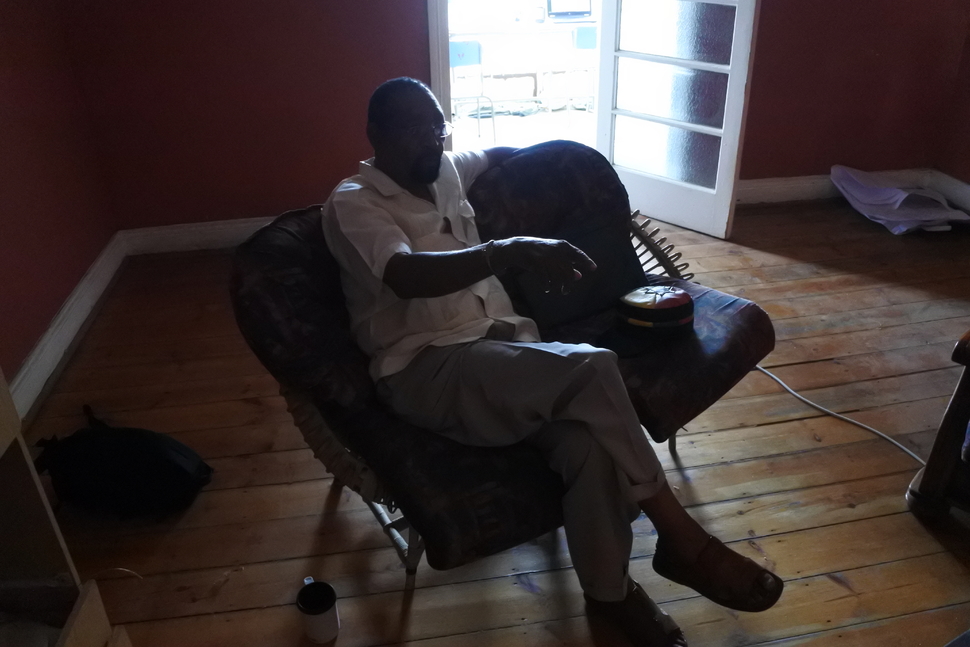Minutes meeting Takatso Mofokeng
20/11/2015
Present:
Professor Takatso Mofokeng
Eva ten Velden
Steven Roerink
Job Seuren
Yonis le Grand
What does Takatso Mofokeng expect of us?
Takatso expects us to meet the agreements that were made before we left the Netherlands. These agreements are described internship assignment form. Our project scope is dependent on the progress made by the previous group. Our team must continue where the previous group left of. The scope will be based on the final report made by the previous group.
We have agreed on the following actions we have to take in the following months:
- Have a look at the “manual” à Takatso will provide this
- Contacting local experts (Martin Mayer, UNISA) and experts from the TU Delft.
- Visiting ARC à Takatso will arrange a meeting with this department.
- Making a list of students of different disciplines who are needed to complete this project and in the long term also other local projects at farms involving biogas.
- Designing a preliminary design of a commercial biogas plant and the valorisation of this preliminary design.
- Contacting other already running small scale biogas plants. For example Botala industries.
In the next part of these minutes the above mentioned actions will be further explained.
What is the situation with continuity?
Our team has stressed the importance of continuity. We believe that ensuring continuity will take a larger role in our project then previously planned. We have gained a lot of knowledge, on the matter of biogas, in the last couple of weeks because of the internship. Our team believes that this learning process would be beneficial to local students. We also estimate that the project will not be fully completed before our departure. In our opinion a team of local students must take over our project after departure in combination with students or experts from TU Delft (stamp of TU Delft is important). The experts, either from the TU Delft or from UNISA, need to be involved because of the valorisation of the design and, in case of the TU Delft experts, extra knowledge transfer from the Netherlands to South Africa. New students from the TU Delft could be involved next year when a new group of minor students can take an internship at the farm of Takatso or maybe somewhere else in South Africa.
Takatso had similar ideas beforehand. He wants to formalise a relationship between Tshwane University of Technology and the TU Delft. So the project can continue and broaden. Once this has happened the hunt for internes can begin. A professor of Agriculture at Tshwane will come by the farm to discuss the necessary fields of expertise in this project. On basis of this the students can recruited. We want to stress the necessity of engineering and biology students. We will also visit the UNISA to involve mr. Mayer in the project. At the moment Takatso himself wants to contact the universities and the thing he needs from us is a list of different kinds of students and disciplines who and which are needed for the continuation of the project. He has said that there will be students coming in January. These probably will be students from the study agriculture. We on the other hand want to get more involved in contacting and especially visiting the universities because of a better knowledge transfer of biogas and the project itself. When we will meet the professor of agriculture we will see how we can be more involved with the university.
Transfer of knowledge
Takatso has stressed that he still believes in the importance of raising awareness among farmers. With contacts within the governments (ARC) a local braai will be set up at the farm of Takatso where (local) farmers will be introduced with the phenomenon of biogas. If this is organised, our team will give a presentation on biogas and show the farmers around at the farm.
A testing station
The acquiring of proper licenses is expected to be at least 2 years. Takatso has said that licenses are only required if the feedstock is more than one ton, this has to be ckecked. In the meantime the plant can be constructed (kan niet zonder licenties, moet uitgezocht worden)/designed (maybe ), but may not be operating as a commercial biogas plant. We do believe that useful work can be achieved in the meantime. In collaboration with universities an internship can be done around experimenting with the prototype (and if the real biogas plant is built, if possible with licencing, this plant can also be used as a testing station). The students could experiment with various feedstocks in an attempt to achieve maximum yield. A collaboration with Prof. Martin Myer, professor of microbiology, of the University of South Africa has been advised by the previous group. Takatso has stated that this is too far in the future for our group to focus on. We are willing to write a plan and help establish contact.
What has changed?
The scope of our project has only changed slightly. Our mission statement remains the same. We have agreed upon the following.
|
Subgoals in original draft |
Subgoals now |
activity |
|
Set up a functional biogas digester |
Setup of a functional biogas digester |
|
|
Make the setup of a biogas digester easier for (other) local farmers. |
Spreading awareness among farmers |
|
|
Spread knowledge about biogas digesters with the same scale like Takatso Mofokeng’s project. |
Knowledge transfer |
|
